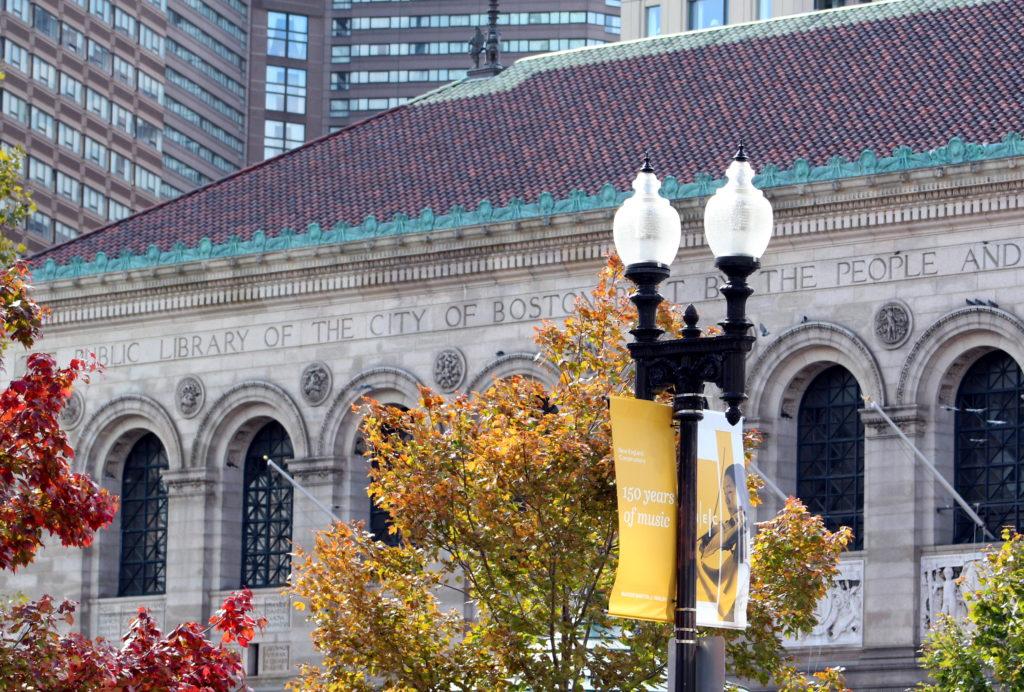By Janette Ebbers, news staff
Mambo No. 5 seems an unlikely find in a records archive. This isn’t the 1999 Lou Bega jam though — this is the original 1950 recording of the same name, whose ending riffs inspired Bega’s hit. Anyone can visit Great78’s website to hear the original staticky version by Prez Prado and his orchestra, as well as more than 30,000 vinyl records.
The Boston Public Library is helping that collection grow by donating almost 200,000 records to The Great78 Project, which is dedicated to preserving historical 78 rpm records.
The donated records will first travel to Philadelphia, where they will be digitized by George Blood LP before making their way across the country to be preserved by the San Francisco-based Internet Archive.
George Blood, owner of George Blood LP, said the library’s archives help to preserve cultural history.
“The Library’s focus on local labels in and around Boston helps preserve the recorded history of the region over many decades,” Blood said in an email to The News. “I am especially excited by the folk labels like Rounder, early American blues and jazz labels like Biograph and independent labels like Ace of Hearts.”
Tom Blake, the content discovery manager at the Boston Public Library, said digitization of the library’s enormous record collection, which is currently packed into their basement, is a natural extension of the library’s public service mandate.
“We’re doing what libraries are supposed to do, which is take care of our collections and make them accessible to the public as much as possible,” Blake said.
So far, the library has two discs from its archives digitized as a sample: “Please Pass the Biscuits, Pappy (I Like Mountain Music)” by W. Lee O’Daniel and his Hillbilly Boys, and “Grieg Piano Concerto” by Freddy Martin and his Orchestra.
“We’ve been looking at this collection for a while, understanding that we’re not doing justice to it letting it just sit in the basement,” Blake said. “Unfortunately, several years ago, because of the economic downturn, the timing wasn’t right to go through a project like that.”
The digitization process is estimated to take two years. Blake said boxes and packing materials have already been shipped to the BPL, and are waiting on proper packing.
“George (Blood) is going to be coming here along with some other representatives from Internet Archives to train staff on how to properly pack up 78s and get them shipped off to Philly,” Blake said.
Blake said the records were gathered by the library over many decades and there was no formal cataloguing system. They have been stored in the basement for years, stacked so tall that a ladder is necessary to reach the top.
Reebee Garofalo, an internationally-recognized music studies scholar at University of Massachusetts Boston, heartily endorsed the growing efforts by libraries towards preservation.
“Libraries to the rescue,” Garofalo said. “These records not only don’t last very long, the commercial record companies have, in my opinion, been pretty negligent in terms of preserving the masters.”
Although the BPL’s records, which consist of both 78 rpm and LP records, can be tedious to digitize while negotiating copyright and proper handling, Blake said digitization is an essential undertaking.
“These are the sounds that informed and entertained our parents and grandparents,” Blake said. “It’s not just music, it’s the spoken word — I was just down there today, and found Navajo creation chants, smithsonian recordings of folk songs that go way back — this is our heritage.”
Although the Boston Public Library’s uncatalogued collection may present some organizational difficulty, Blood is excited to start the digitization process.
“While we have yet to fully explore the more than 40,000 78 rpm discs in this group, the fact that the recordings are clean, in sleeves and shelved orderly by label and manufacturer’s number will greatly facilitate the digitization process,” Blood said. “Bravo for that. Can’t wait to hear what new discoveries are waiting for us in this amazing treasure trove of sound.”









